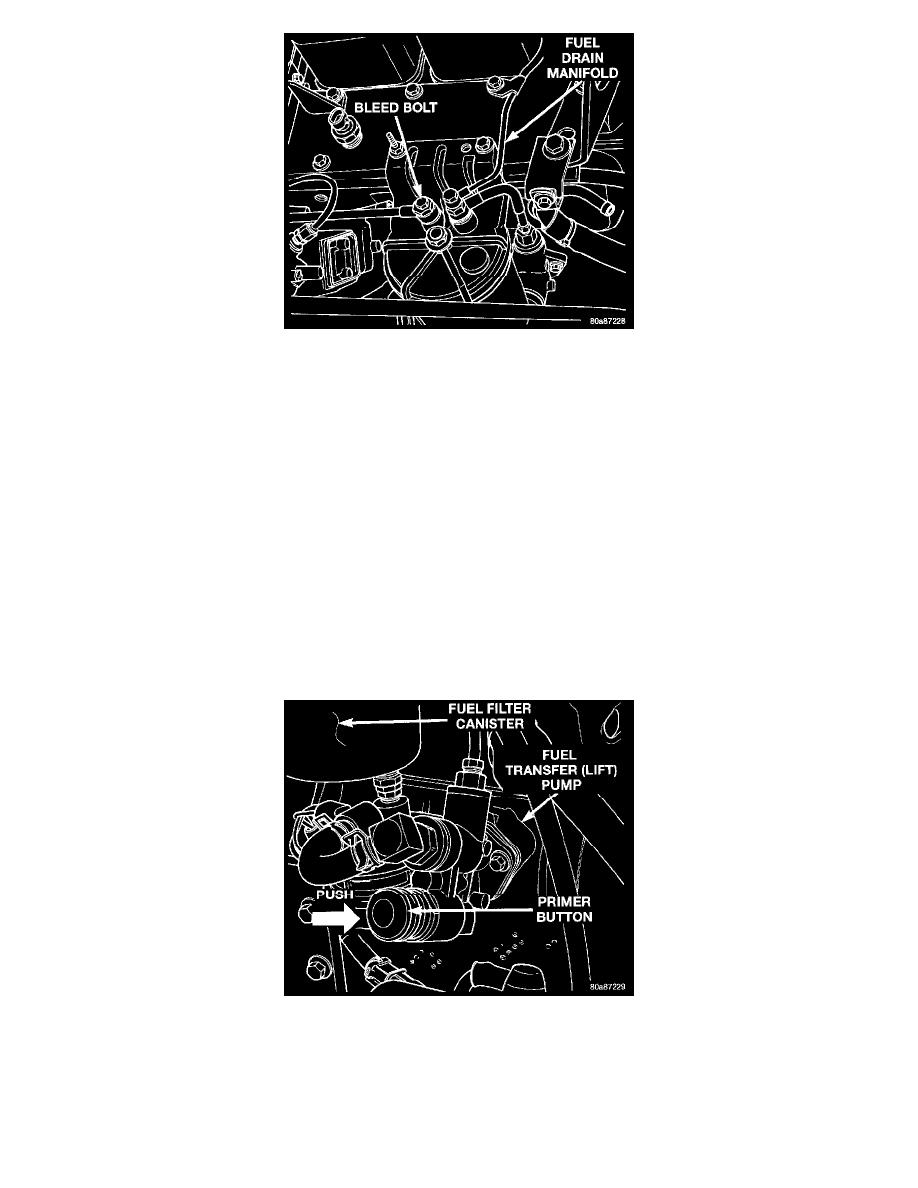RAM 2500 Truck 4WD L6-359 5.9L DSL Turbo VIN D FI (1998)

NOTE: A certain amount of air becomes trapped in the fuel system when fuel system components are serviced or replaced. Bleed the system after
fuel system service according to the following procedures.
WARNING: Do not bleed air from the fuel system of a hot engine. Do not allow fuel to spray onto the exhaust manifold when bleeding air from the
fuel system.
MANUAL BLEEDING
Some air enters the fuel system when the filters or injection pump supply line are changed. This small amount of air is vented automatically from the
injection pump through the fuel drain manifold. This is if the filter was changed according to instructions.
The system may have to be bled manually if:
-
The vehicle fuel tank has been allowed to run empty
-
The fuel filter is not filled before installation
-
The fuel injection pump is replaced
-
High-pressure fuel line connections are loosened or lines replaced
-
Initial engine start-up or start-up after an extended period of no engine operation.
1. Loosen the low-pressure bleed bolt.
2. Operate the rubber push-button primer on the fuel transfer pump. Do this until the fuel exiting the low-pressure bleed bolt is free of air.
3. Tighten low-pressure bleed screw to 8 N.m (6 ft. lbs.) torque.
FUEL INJECTION PUMP BLEEDING
WARNING: The engine may start when cranking to bleed air from the injection pump place the transmission in neutral or park and set parking brake
before engaging the starter motor.
CAUTION: Do not engage the starter motor for more than 30 seconds at a time. Allow two minutes between cranking intervals.
1. Perform the previous procedure: Manual Bleeding.
